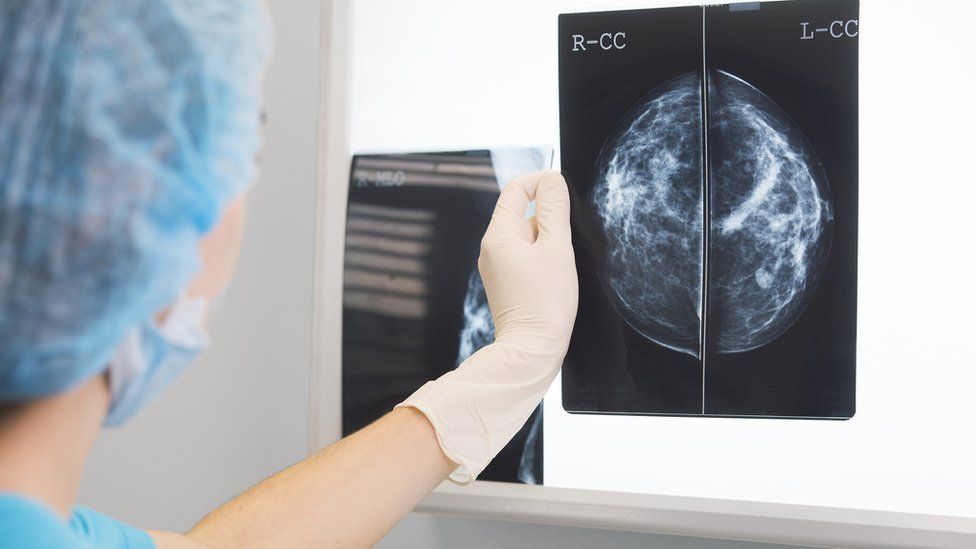25/10/2023
25/10/2023

NEW YORK, Oct 25, (Agencies): A recent study, featured in the Radiology journal, has highlighted the potential of AI in predicting breast cancer up to two years before conventional diagnosis. The research delved into data from BreastScreen Norway examinations conducted between January 2004 and December 2019. During this investigation, women subsequently diagnosed with breast cancer based on these examinations were assigned AI risk scores through a commercially available AI system.
These AI scores were categorized as 1-7 for low-risk malignancy, 8-9 for intermediate risk, and 10 for high-risk malignancy. The study analyzed AI scores alongside mammographic features like calcifications and breast density in 2,787 screening exams involving 1,602 women, averaging 59 years of age. Astonishingly, more than 38% of screening-detected and interval cancers were assigned a high-risk AI score of 10 prior to their breast cancer diagnosis.
Solveig Hofvind, a co-author of the study and the head of the Norwegian Breast Cancer Screening Program, expressed her surprise at the results. She stated that this breakthrough means a significant portion of cancers can be detected earlier, potentially leading to less aggressive treatments, reduced side effects, and ultimately a better quality of life for patients.
Dr. Brian Slomovitz, Director of Gynecologic Oncology at Mount Sinai Medical Center in Miami Beach, Florida, found the study "very interesting" and acknowledged the potential for early detection, though not necessarily prevention. However, he stressed the need for further prospective research to translate these findings into clinical practice effectively.
Early detection has the potential to lead to timely interventions, potentially improving patient outcomes and reducing the severity of treatments required. AI algorithms can consistently analyze vast amounts of data, ensuring precise screenings with minimal fatigue, serving as a valuable tool to assist radiologists in identifying potential malignancies.
Despite these promising advancements, the study's findings also prompt caution. Overreliance on AI without human judgment could result in missed diagnoses if the software fails to detect certain malignancies. AI might erroneously identify benign lesions as malignant, potentially causing unnecessary patient stress and interventions. Nevertheless, the study concludes that AI's ability to learn and adapt over time will likely enhance its accuracy and ultimately lead to better outcomes in the future.


